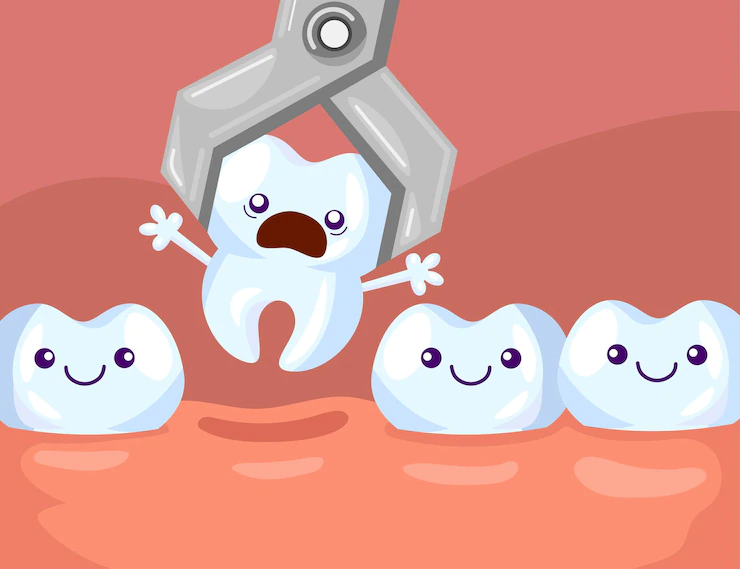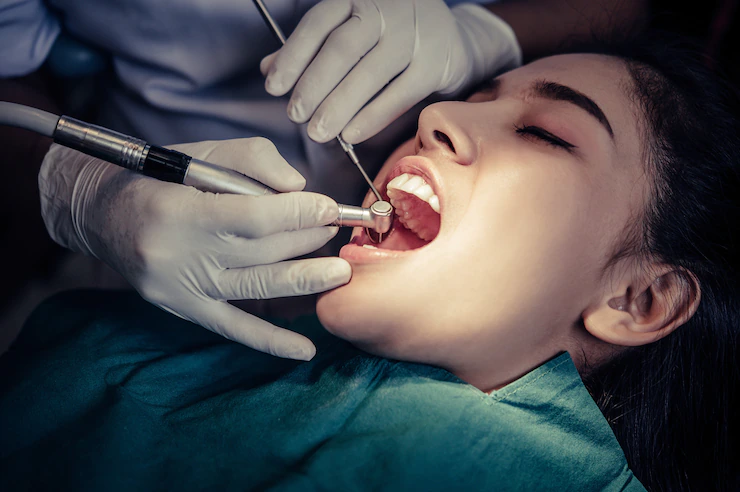What is the Importance and Complications of Wisdom teeth

What is the meaning of Wisdom teeth? Wisdom teeth are the last adult teeth to come from the gumline. Luckily, most people still have all four wisdom teeth when they’re adults. They usually erupt at the back of the mouth and there are two on top and two on the bottom.
Wisdom teeth don’t make you smarter. They’re called that because they usually come in when you’re older, around ages 17 to 21. These teeth are located in the very back of your mouth.
As part of a complete set of adult teeth, you can get a total of 8 teeth on either side which is either molars or premolars.
Table of contents
Why They should be removed?
You’re most likely to have problems with these molars. On average, 10 million wisdom teeth are removed or extracted in the US each year. The most common reason is impaction when the tooth isn’t able to come out from the gum because there isn’t enough room.
What are the Possible Complications of Wisdom Teeth
Dentists suggest having them removed as a precaution since they could lead to problems in the future.

- It’s common for a sac to form around a tooth before it erupts & this sac can become infected and lead to bone loss in your jaw.
- If a tooth is lying underneath your gum line, it can attack other teeth by slowly eating into the roots of their enamel.
- Only one side of your tooth is visible, but on the other side, bacteria and plaque collect over time.
But many health experts don’t agree with tooth extractions and think that they could be unsafe. If your dentist suggests it, be sure to get a second opinion from another professional before you make the final decision.
Most wisdom teeth should come out if they show signs of disease or major issues. Reasons include:
- Infection or cavities
- Skin lesions are often caused by this infection
- Damage to nearby teeth
- Bone loss around roots
- There’s not enough room to brush and floss the tooth
What are the Treatments for Wisdom Teeth
Wisdom teeth are the third molars in your mouth, located in the back of your mouth where it meets your jawbone. Symptoms may include pain, red or pus-filled gum pockets, a tooth that feels longer than its neighboring teeth, and excessive drooling or coughing. See a dentist if you notice any of these signs.
here are two types of treatment options that the Doctor would recommend which includes
Simple Extraction
How your dentist takes your tooth out depends on how far it is out of your gum. If it has come partially through, they will numb the area first and then use a needle to put a stronger numbing medicine in the area.
Dentists first loosen the tooth with a tool called an elevator, then remove it with dental forceps, which look like pliers. They clean out the tooth area and pack it with gauze to stop bleeding.
You may experience some bleeding on the first day, as well as a sore and swollen mouth for a few days. Bruising might take a little longer to dissipate. You must abstain from brushing or flossing for 24, hours and only rinse with salt water during that time. After that, proceed to gently gargle with warm salt water for about
Surgical Extraction
If your Wisdom tooth is still below the gum line, you’ll need to have it removed. Some dentists may refer you to an oral surgeon for this procedure, but many dentists perform it routinely.

During the operation, one will likely be administered medicine to make them sleepy. This way they’ll feel minimal pain and won’t remember anything. The surgeon will cut open the gum and remove the tooth bone to reach the root of it. They may need to cut the said tooth into smaller pieces so that there is a hole for it in the mouth afterward.
It’s probably a good idea to have a ride home as you may be feeling drowsy from the medication. You might be able to manage your pain with over-the-counter drugs, or your doctor may recommend prescription painkillers if they took out any bone tissue.
Wisdom teeth: Prevention of Complications
Sadly, there’s no way to avoid impaction. However, getting regular 6-month checkups with your dentist enables them to monitor the growth & the emergence of wisdom teeth and helps them identify any potential impacts. Up-to-date dental X-rays may indicate impact.
Takeaway
Wisdom teeth are molars, your broadest and toughest teeth But some people don’t have all their wisdom teeth. Missing teeth can be very painful and lead to other serious complications. Why not call your dentist or surgeon as soon as you are experiencing problems with swallowing or breathing?
Products That We Suggest for you
Dentitox Pro – Teeth & Gum Health Support
Dentitox Pro is a nutritional supplement that is from natural substances that can aid with gum and tooth problems. To achieve the best outcomes, the supplement includes a variety of natural substances in just the appropriate proportions. Unlike other supplements, the Dentitox Pro is completely safe and effective.
To know more and purchase, Click Here
G-Force – Dental Health Formula
G-force is a blend of natural components that have proof clinically to cleanse your saliva and support healthy gums and teeth. It force’s antioxidants aid in the detoxification of your liver and all physiological fluids, resulting in bacteria-fighting saliva, as well as robust gums and teeth.
To know more and purchase, Click Here








Comment to this Article
Comments that encourage respectful conversation are welcomed at AGP Health n Beauty. Stay on subject, please. Comments that are aggressively promotional of goods or services or that include personal attacks, vulgar language, or other forms of abuse will be deleted. Which remarks break our comment policy will be decided at our discretion. (Anonymous comments are accepted; just leave out your name in the comment box. Although necessary, your email address won't be posted with your comment.)